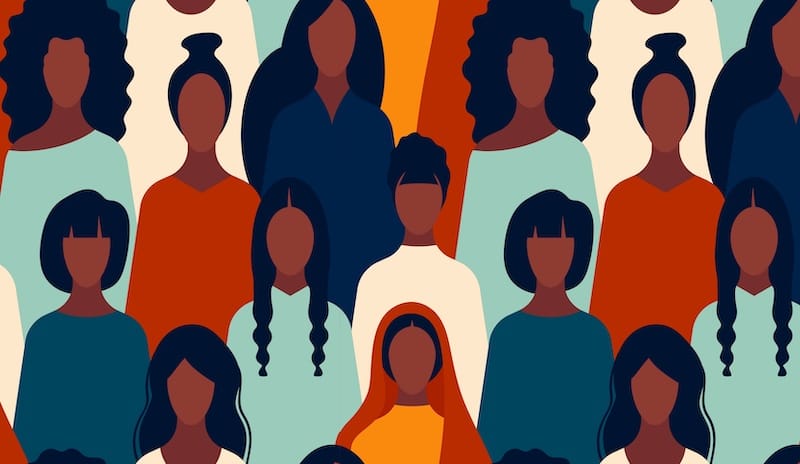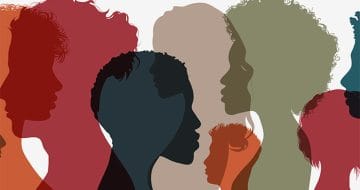Make your mark with these essential strategies courtesy of legal marketing specialist Christianah Babajide

Navigating the legal world as a Black woman presents unique hurdles, from subtle biases to overt discrimination. However, it is evermore possible to thrive in these spaces than it was years ago, thanks to the progress made in diversity and inclusion efforts. In this guide, Christianah Babajide outlines key strategies to empower Black women in legal environments.
“My mission in life is not merely to survive, but to thrive.” — Maya Angelou
Know your worth
Research has shown that ethnic minority women continue to be underrepresented in senior leadership positions across organisations, creating a lack of Black female role models. This lack of diversity at senior levels impacts decision-making and organisational culture, affecting the lives of Black women. Consequently, Black women may receive less career advice and have limited access to formal mentorship and sponsorship programmes. This can make navigating pivotal moments, such as biased performance reviews or promotions, challenging.
As a Black woman, it is crucial not to let these obstacles hinder your ability to advocate for yourself. If you don’t have a role model at your firm whom you can turn to for advice, consider seeking support from someone at another firm or connecting with other Black women on LinkedIn through active groups and networks that provide a safe space for women of colour.
Find your tribe
Navigating the corporate culture in law as a Black woman can present unique challenges, particularly in male-dominated and predominantly white environments. The daily experience of being the only person of colour in a boardroom meeting or at work can feel isolating and overwhelming.
However, the journey to success does not have to be solitary. Seek out mentors and allies who can offer guidance and opportunities for growth. Connect with other Black women in the legal industry through networks like; She Leads for Legacy, Black Woman’s Law Network, Black Women in Law, The Woman of Colour Blueprint, WCAN, etc. Joining professional networks specifically tailored to Black women in the legal industry can open doors to mentorship opportunities, career development resources, and job prospects. These spaces serve as platforms for sharing knowledge and advocating for diversity and inclusion within the profession.
Embrace authenticity
Embracing authenticity in the workplace is fundamental for Black women, who often resort to code-switching to fit into predominantly White spaces. Code-switching, as highlighted in recent research , is commonly perceived as necessary for professional progress, yet it takes a significant psychological toll. In addition, studies have shown that Black women believe wearing their natural hair to interviews will hinder their chances of getting the job because it is deemed as unprofessional and thus they tend to adhere to the ‘European look’ through a weave. If hair is about identity and pride for Black women, what happens when they are forced to cover it up? This pressure to conform to predefined norms ultimately contributes to ‘Black fatigue’.
Therefore, it is critical for Black women to seek out law firms and sets that value authenticity and embrace individuals that express their cultural identities, be it through hairstyle, clothing, or food choices. Such employers understand that being authentic fosters trust and credibility among colleagues and lays the foundation for genuine connections and a more inclusive work culture. Like Paul Davis said, “Go where you are celebrated.”
Always remember that no one should have the power to dictate how you present yourself professionally. You should never feel compelled to conform to standards that make you uncomfortable. You have the right to be yourself unapologetically; do not allow anyone to dilute your sense of identity. Being a Black woman is a true joy and privilege.
Challenge Biases
Expanding on the difficulties Black women encounter in legal settings, it is important to recognise the subtle biases and small acts of discrimination they often face. Even though efforts are made to promote diversity, Black women can feel pressured to represent their entire group in the workplace. This expectation can be overwhelming and tiring for them, leading to feelings of being alone and not being fully valued.
One common problem is when firms rely too much on the only Black person in the room to give insights on diversity issues. While this person may have valuable experiences to share, it is not fair to put all the responsibility on them. Instead, firms should provide diversity training for everyone, that teaches about concepts like unfair subconscious biases, understanding different cultures, and how to be inclusive leaders. Such training can educate everyone in the firm on how to challenge biases and foster a fairer workplace, whilst alleviating the burden placed solely on the Black individual.
Sọ̀rọ̀ Sókè
The phrase “sọ̀rọ̀ sókè,” which means “speak up” in Yoruba, is a reminder to take action, especially when facing challenges at work. If you are experiencing unfair treatment or noticing differences in how people are treated based on their background, it is important to speak out. Encouraging Black women to speak up helps them recognise the value of their voices, whilst helping to create an environment where everyone is treated with respect and fairness. In the famous words of Fannie Lou Hamer: “If you don’t speak out ain’t nobody going to speak out for you.”
Christianah Babajide is a legal marketing expert. She can be found on LinkedIn and her Instagram handle is @christianahb_.


